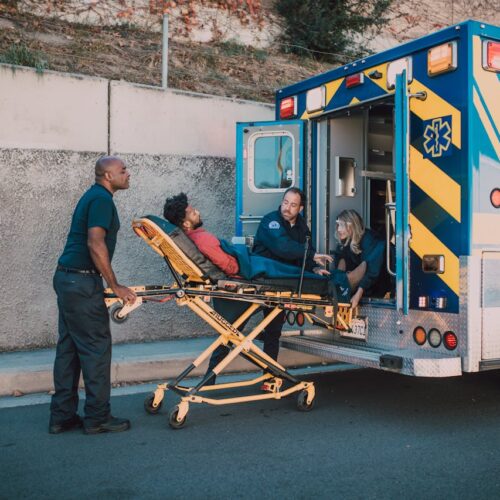National Reentry Resource Center Hosts First of Five Reentry Training Summits for New Grantees
State and local agencies that were awarded a 2014 Second Chance Act (SCA) Adult Demonstration or Technology Career Training grant sent representatives to New York City, in late April, to take part in the first Reentry Training Summit hosted and organized by the National Reentry Resource Center (NRRC), a project of the CSG Justice Center.
The 25 representatives—from California, Florida, Massachusetts, and plenty of places in between—attended panels and discussions over two days to learn about organizing their grant programs and maximizing those programs’ effectiveness.
This meeting was the first of five Reentry Training Summits the NRRC will host between April and September. Like this initial gathering, subsequent summits will convene people from jurisdictions awarded the same type of SCA grant—an approach that allows for more targeted and germane training and also encourages collaboration between grantees.
“These summits are great opportunities for grantees to connect with one another and discuss their efforts to implement evidence-based practices in their agencies,” said Suzanne Brown-McBride, the CSG Justice Center’s deputy director. “The summits have been designed so that attendees get more direct and pertinent interaction with subject-matter experts and opportunities to learn from each other.”
The first morning of the late-April event, the grantees took in the panel “Implementing RNR: Service Delivery and Capacity Building in Action,” which featured three presenters including Dr. Virginia Barber-Rioja from the Brooklyn LINK Court Mental Health Program, who kicked things off with a discussion of the uses and limitations of RNR (the Risk-Need-Responsivity model, which matches an offender’s treatment to his or her individual characteristics). Chrystal Owin, visiting from the Colorado Department of Public Safety, talked about how an agency can best begin implementing RNR, including how to select the right staff, get them trained, and keep them motivated.
Dr. Patrick Hynes from the Connecticut Department of Correction discussed his experiences managing several SCA reentry grants. His opening advice for managing a federal grant was to “start with the end in mind;” without a clear goal, Hynes said, programs don’t usually fare well.
In the Q&A session after the presentation, a program manager described challenges in her work: “What do you do if the risk tool is compelling you to ask questions that might seem invasive, or that make the client nervous or angry?” Is it appropriate, she wondered, to deviate from the exact language of the risk assessment’s questions? (Yes, answered Barber-Rioja, who added that it can also help to explain to the client why you’re conducting a risk assessment, and why you’re asking certain questions.)
Between panels, the grantees attended smaller breakout sessions, where they talked about programmatic challenges—such as how to implement a validated risk assessment tool and how to engage and train staff—and discussed potential solutions. On the second day, they also attended workshops where they learned about the specific reporting requirements of their particular grants.
Other overarching topics covered during the summit included how to measure and use data to improve practices and results (you can watch a summit presentation about data by clicking on the video below) and how to take advantage of resources to support a program’s sustainability.
For more information on upcoming summits, or to learn about the CSG Justice Center’s reentry work, click here.
In response to growing calls for police reform in New Jersey, particularly following the shootings of Najee Seabrooks…
Read More Three Things to Know About New Jersey’s Groundbreaking Community Response Legislation
Three Things to Know About New Jersey’s Groundbreaking Community Response Legislation
In response to growing calls for police reform in New Jersey, particularly…
Read More Apply Now: Join a Learning Community for Community and Crisis Response Teams to Improve Responses to Youth
Read More
Apply Now: Join a Learning Community for Community and Crisis Response Teams to Improve Responses to Youth
Read More
 Apply Now: Join a Learning Community Focused on Substance Use and Overdose Community Response Programs
Read More
Apply Now: Join a Learning Community Focused on Substance Use and Overdose Community Response Programs
Read More













